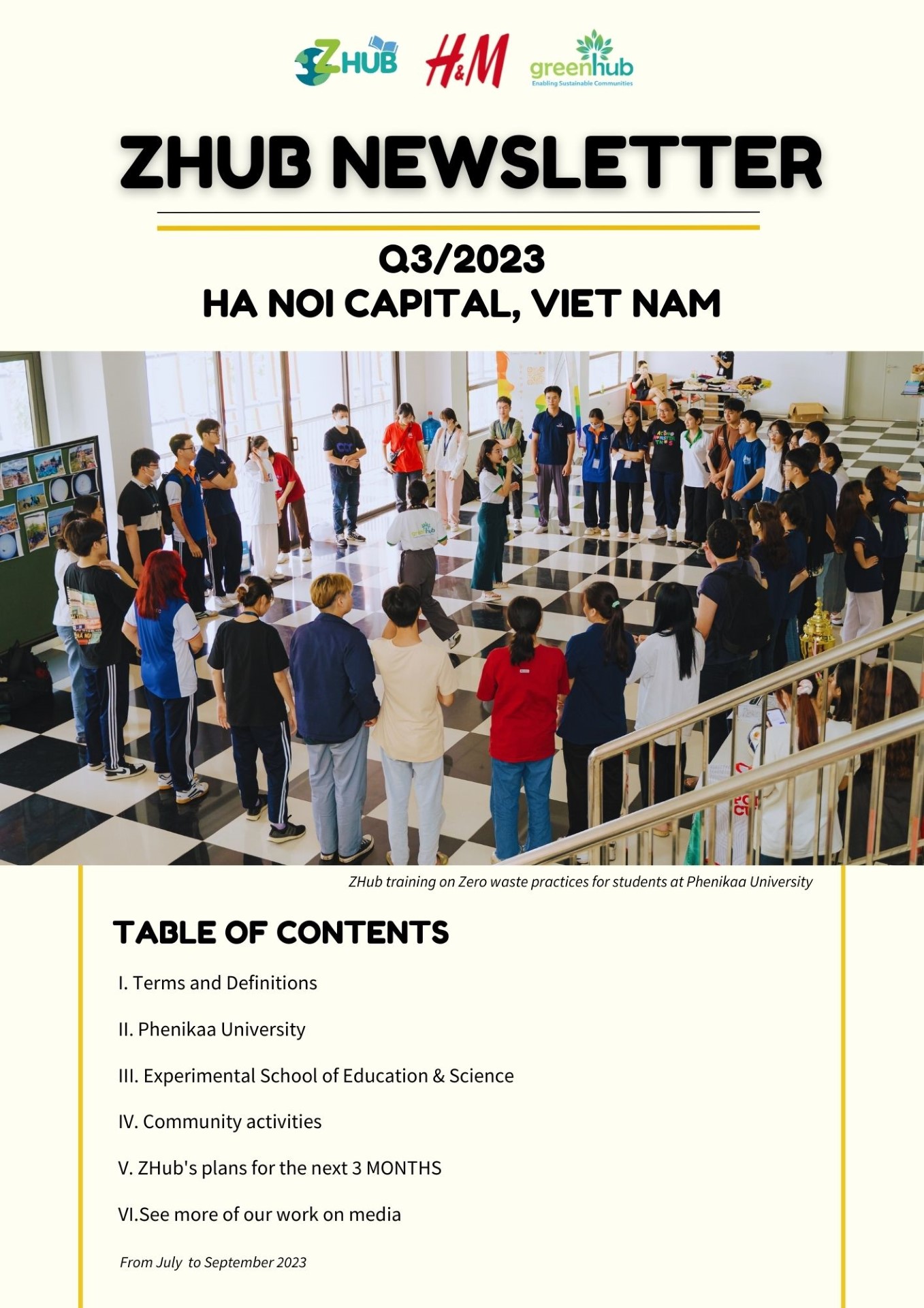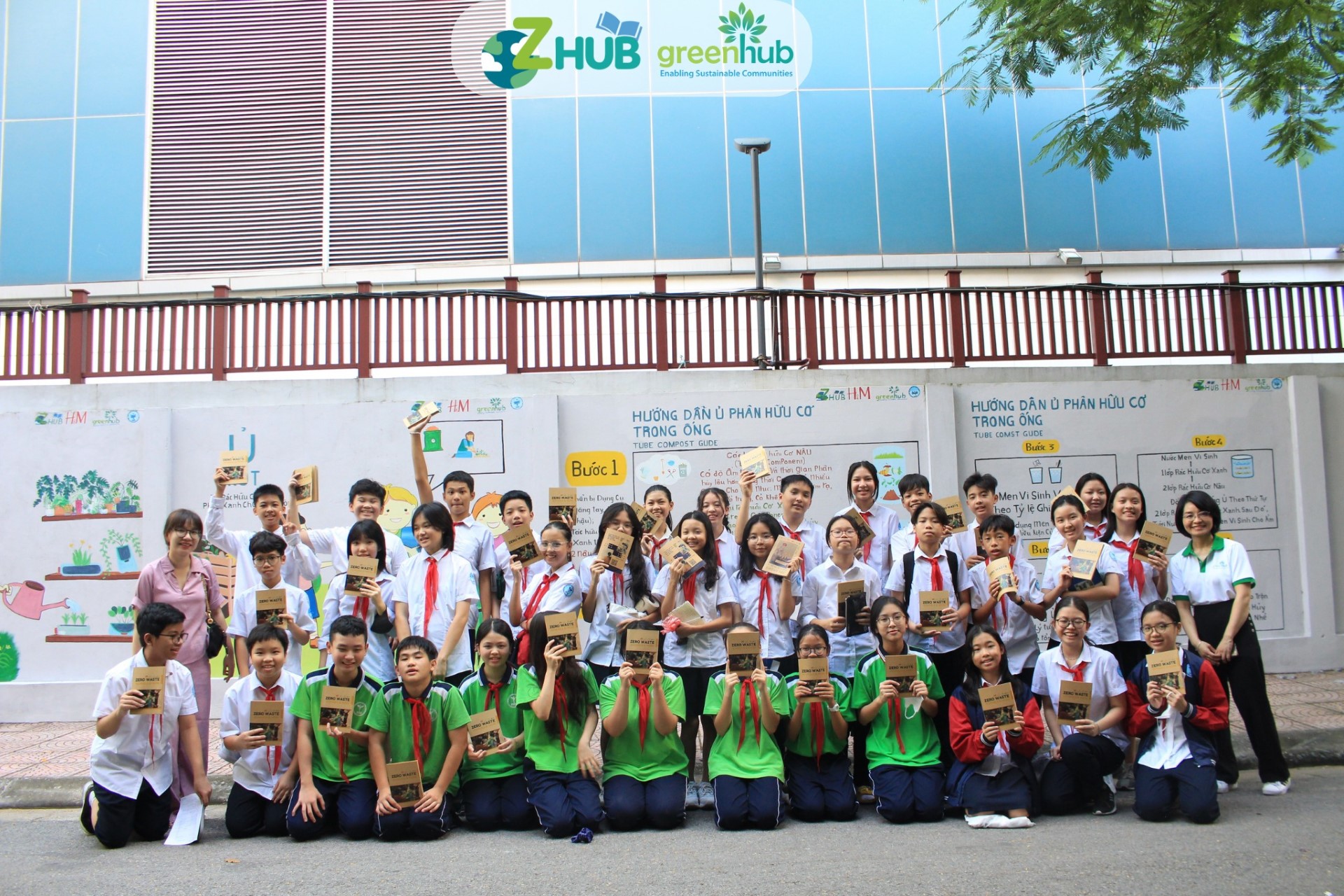On May 29, 2023, a workshop took place in Can Tho city to share the results of the project “Zero Waste to Mekong River: Pilot Circular Economy model for Floating markets in Can Tho”. This was an opportunity to reflect on the efforts of project participants, sharing of results and practical experiences, and also an opportunity for the locality to officially receive and show their commitment on maintaining the achievements of the project.
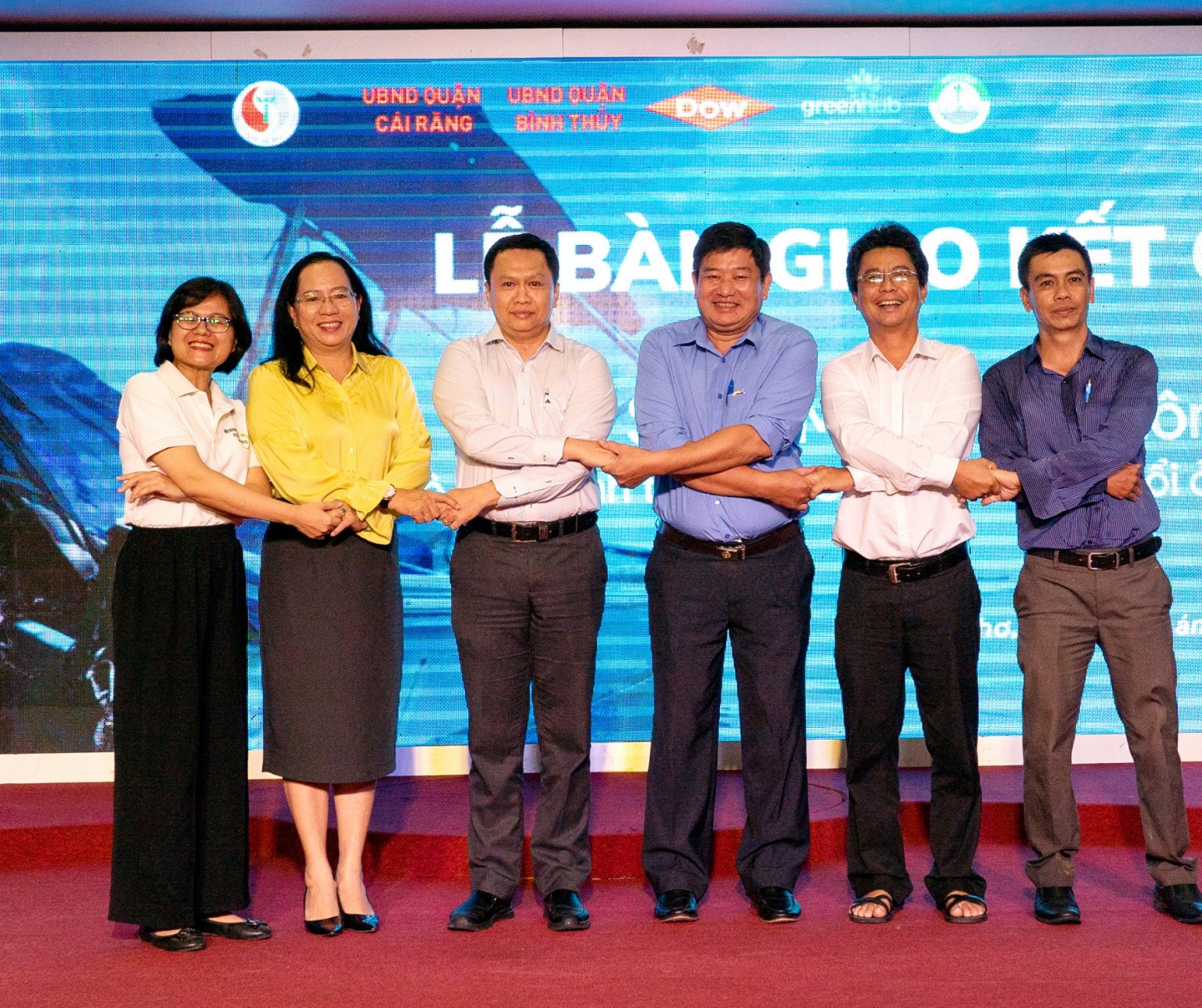
Can Tho city is a poetic river tourism destination, including its Cai Rang floating market and Con Son, a small islet on the Hau River. These are also two locations for implementing activities of the project “Zero Waste to Mekong River”, funded by Dow Chemical Vietnam Co., Ltd. (Dow Vietnam).
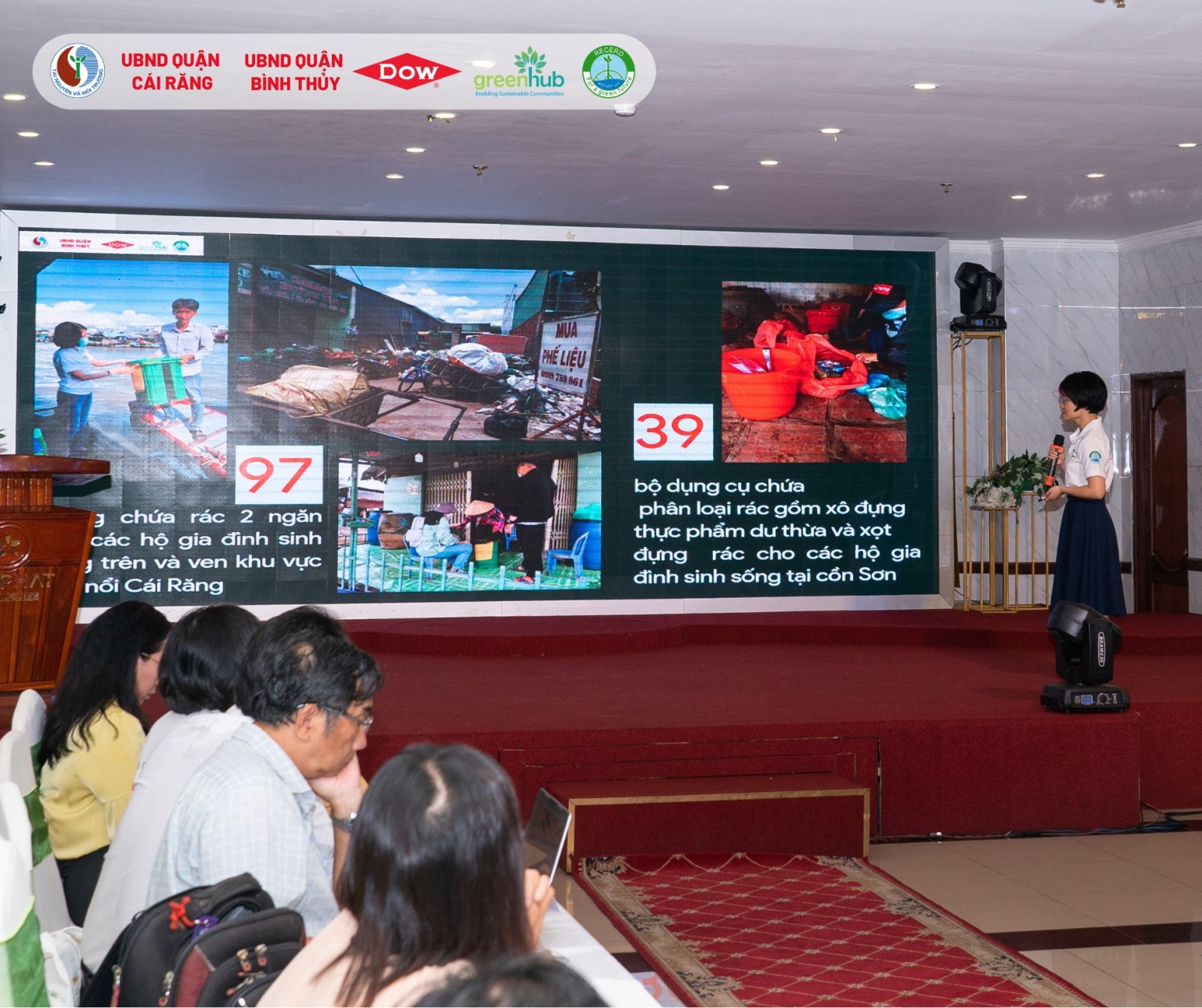
With the goal of promoting a circular economy, reducing waste from rivers to the sea, and creating behavior change in waste management for local communities living on rivers, GreenHub and the Research Center for Resources and Rural Development (RECERD) implemented the project with the support of the local population, Can Tho
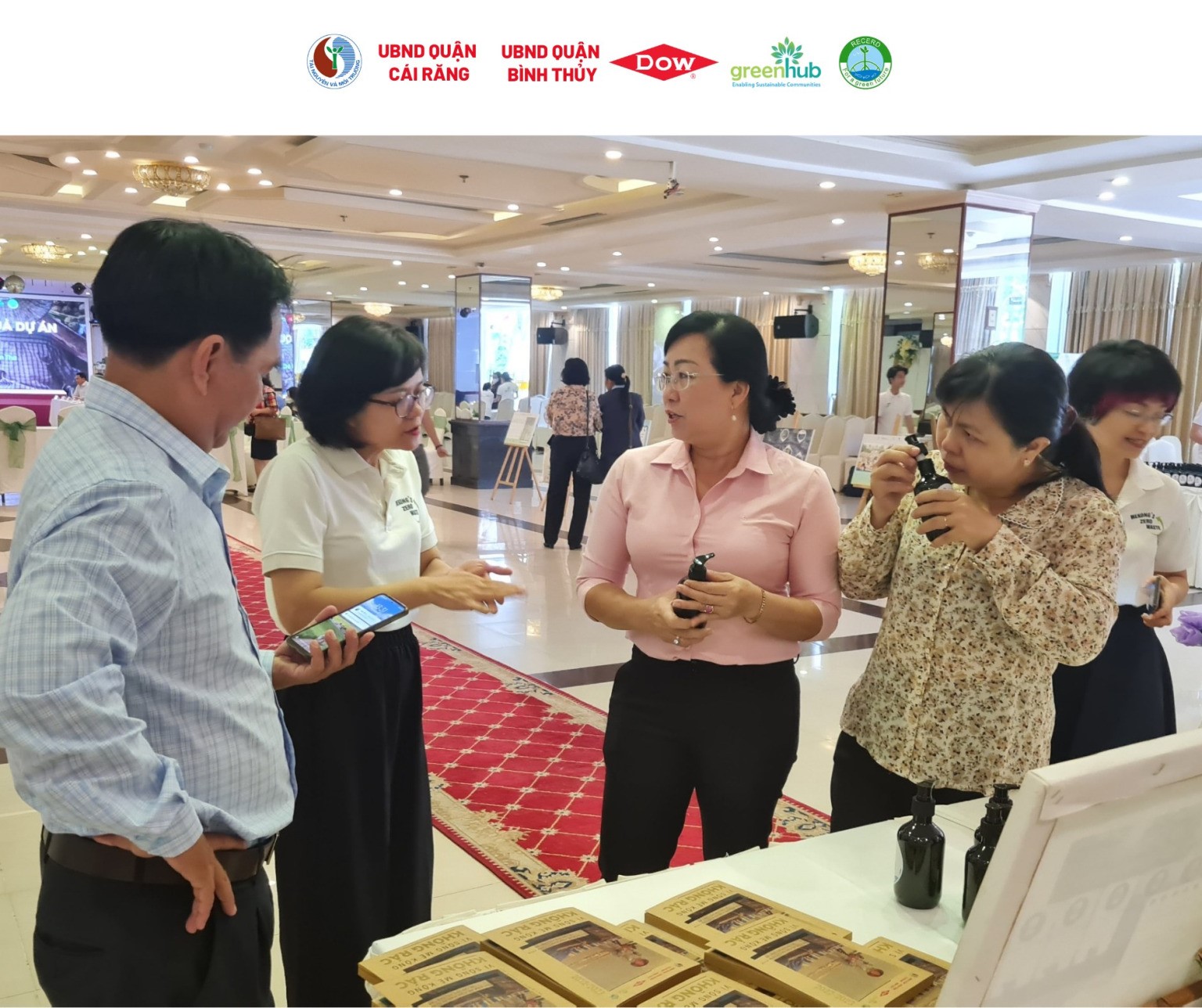
People’s Committee, Can Tho Department of Natural Resources and Environment and local authorities in Binh Thuy and Cai Rang districts.
During the implementation process, the project effectively coordinated with localities and partners, promoting the efficient classification, collection and treatment of waste. In particular, measures such as strengthening education and raising public awareness, initially building the habit of sorting, collecting and treating organic waste achieved remarkable results.
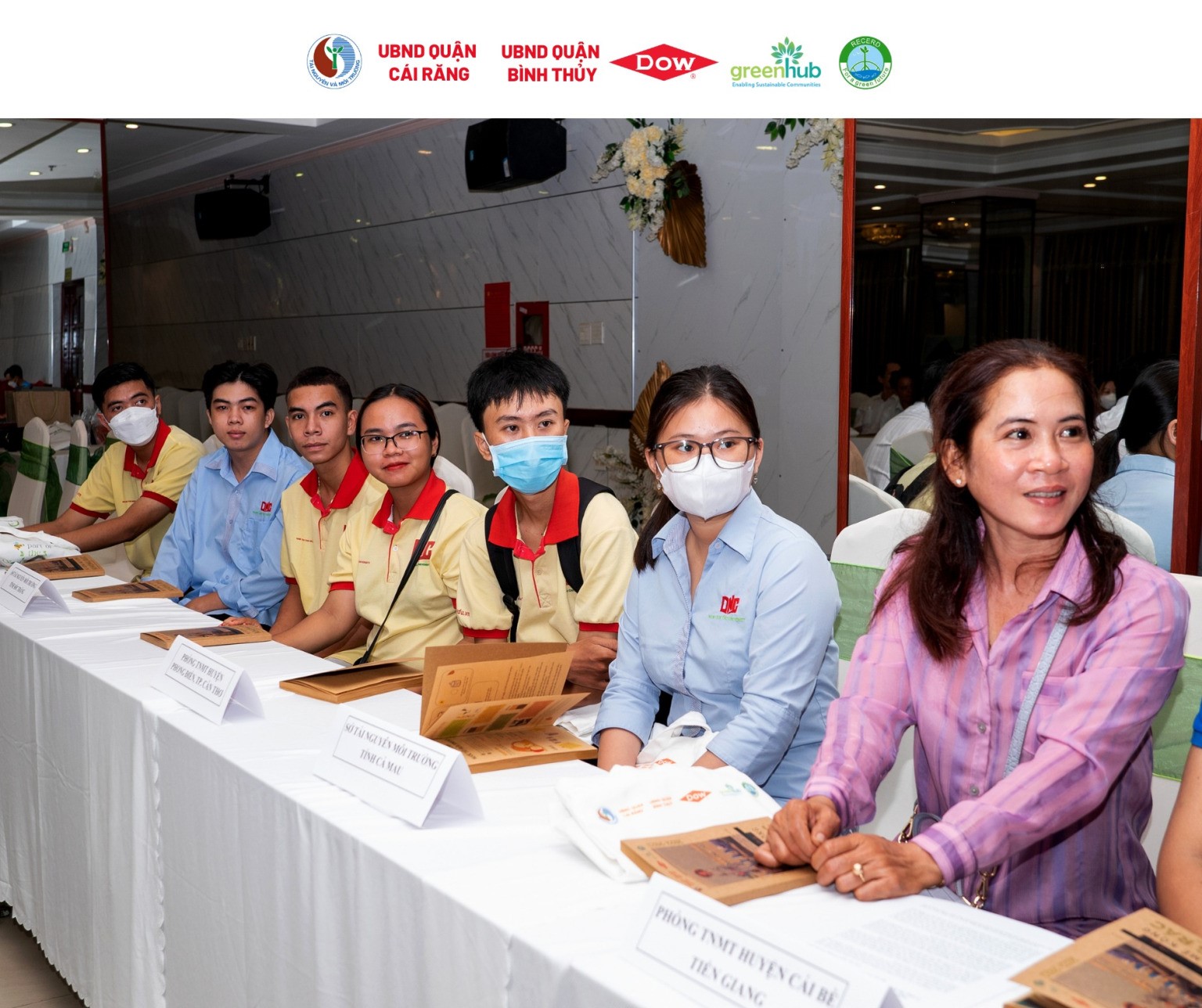
Local participants gradually reduced and effectively treated household waste by making use of organic waste with the “Banana Circle Model”, making eco-Enzyme, harvesting agricultural products for charity kitchens, or making use of agricultural by-products for animal breeding, coconut shells for fuel, etc. To date, more than 30 tons of agricultural products have been delivered to the kitchens. About 13 tons of coconut shells were collected for fuel, and 150 tons of agricultural by-products were collected and used effectively for animal breeding.
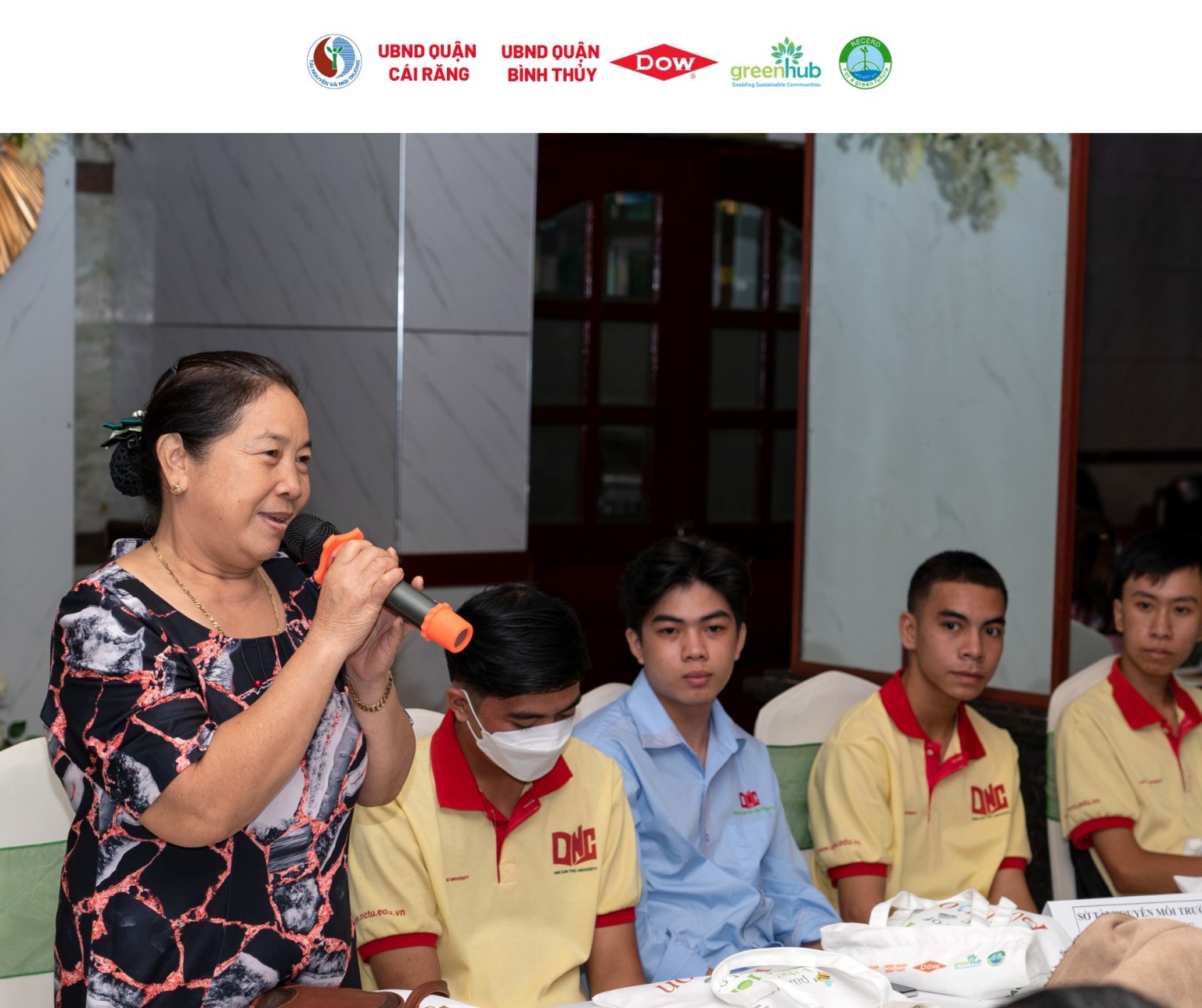
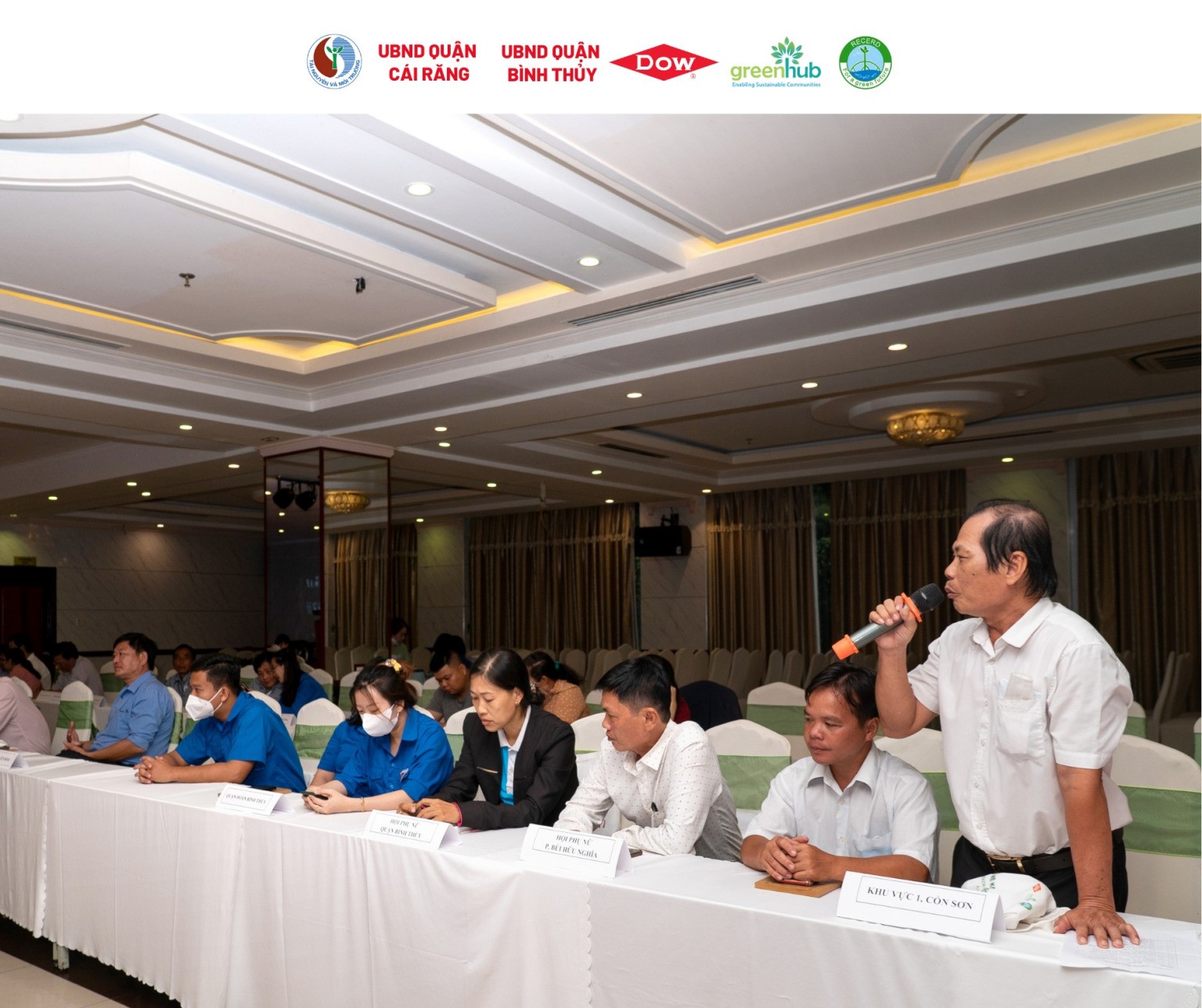

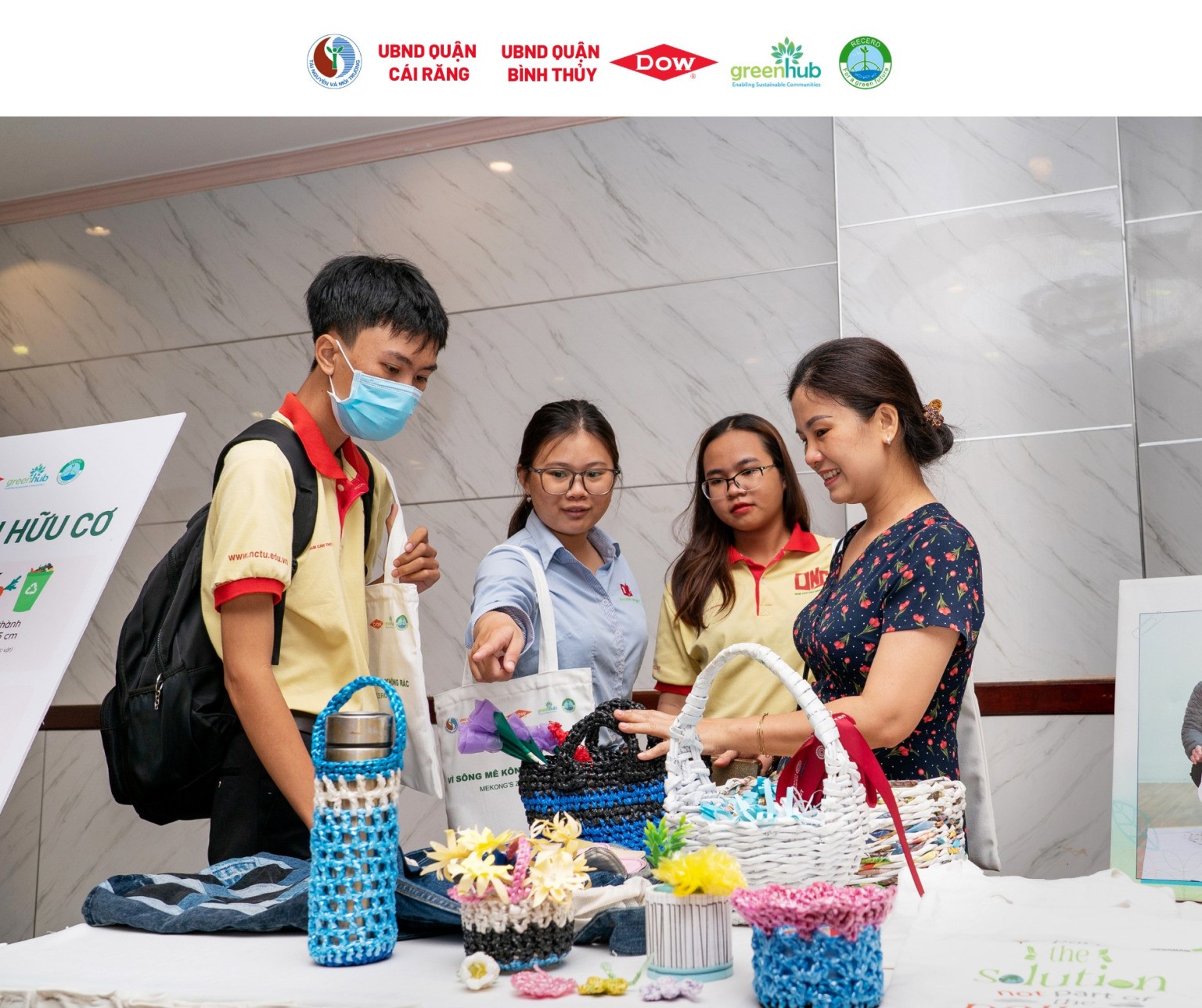
In addition, the project organized a pilot system to collect and transport waste from local rowboats in the Cai Rang floating market and Con Son. Within six months, 338 tons of low-value waste were collected and transported to the city’s waste disposal point. The project also carried out many surveys and collected data for research. Mr. Pham Nam Huan, Deputy Director of the Department of Natural Resources and Environment of Can Tho City, commented: “The project has achieved remarkable results, such as the completed dataset on the current state of waste management; improved people’s awareness, attitudes and behaviors as well as information on plastic recycling facilities, which is an important basis for Can Tho city in the process of selecting effective waste management and treatment solutions; successfully built and operated pilot models of waste classification, collection and treatment at Con Son and Cai Rang floating market; called for the coordination of local authorities, people and related units, forming a public-private partnership mechanism in waste collection and treatment. The project contributed to helping Can Tho city raise the community’s awareness of environmental protection and enhance environmental quality in Cai Rang Floating Market, Con Son – two popular tourist attractions in the city.

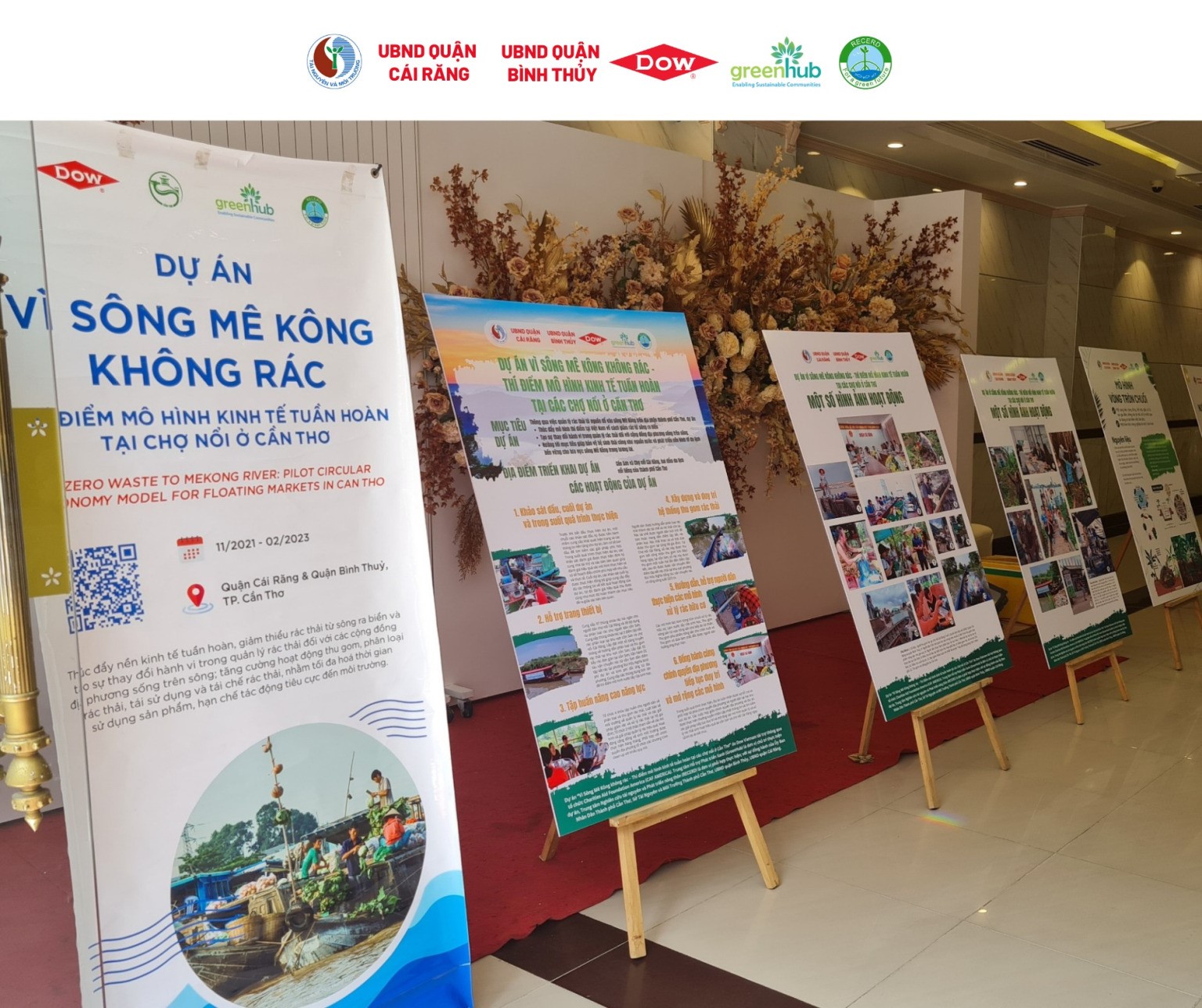
The project worked with local authorities to propose solutions to grow and sustain local models of waste management and treatment. At the workshop, Mr. Nguyen Van Khanh, Vice Chairman of Binh Thuy District People’s Committee, reaffirmed his commitment to upholding the project’s achievements: “In Con Son, the project has changed people’s perspectives on waste treatment while also resolving challenges with garbage collection and transportation. Both the environment and the lives of the locals benefit greatly from these very useful measures. We commit that when the project ends, the locality will continue to maintain activities and spread project results.”

